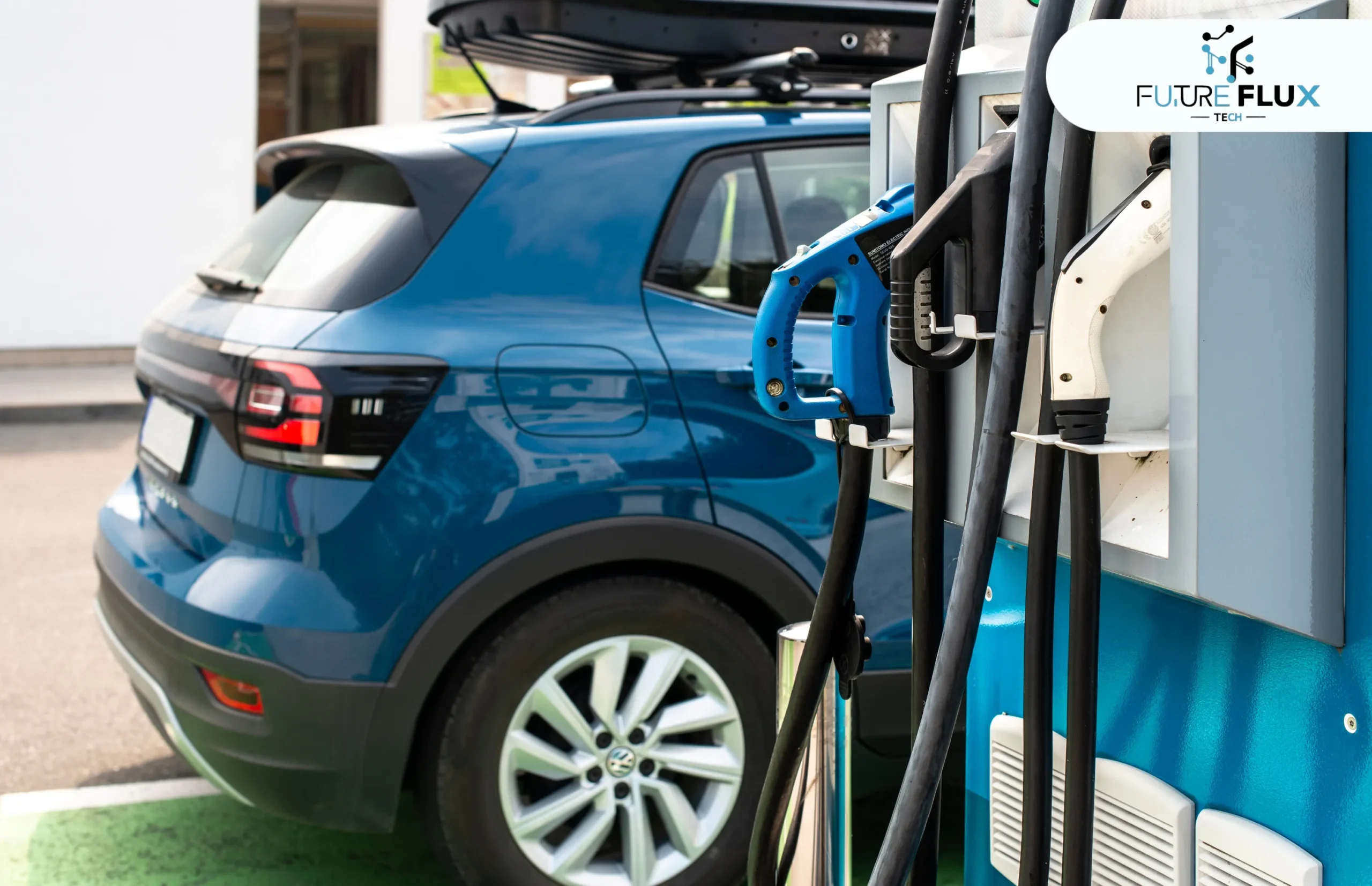Starting a new business is a huge decision that can affect your finances and entire career trajectory. However, you can progress from the beginning with the best practices and strategies. Since electric vehicles are becoming more prevalent on the road, many entrepreneurs may consider starting an EV charging station business. Choosing the right electric car charging station business model is your journey’s first and most important part. But, for that, you need to gain knowledge and understand everything related to charging station businesses.
What is an Electric Car Charging Station Business Model?

What is an Electric Car Charging Station Business Model?
An electric car charging station business model implies different business methods from those of an EV charging station. With the adoption of EVs, many shopping malls, commercial property owners, restaurants, and hotel owners are looking towards offering EV charging. These are not necessarily a primary line of business, but these owners may use them for different purposes. For instance:
To attract customers and shoppers to increase sales.
Convenience or benefit for their employees.
A good gesture or courtesy for guests, tenants, and visitors.
As a support for carbon reduction and green initiatives.
Source of added revenue from electric vehicle charging.
An attractive strategy to make their business highly visible for promoting “Green” in their brand.
Ways to Structure Your Electric Car Charging Station Business Model
To open an EV charging business, you must ensure which electric car charging station business model you want. You need to learn about different models available for you and your plans. You can also learn strategies and tips on how to own a charging station for your business for a successful journey.
Loss Leader Model
Businesses often use this model to offer free charging for electric vehicles. They balance the associated expenses with the extra income they generate from their existing lines of business. Companies usually provide this business model to attract more drivers, strengthen customer loyalty, and boost in-store purchases.
Total Cost Recovery or Operational Costs
This system is one of the most common EV charging business models. It charges users for plugging in their electric vehicles. The charge corresponds to the running expenses, and a limit is offered to cover the installation and hardware charges if complete cost recovery is required.
EEV owners are becoming more accepting of paying a fee for vehicle charging. However, some people also compare the cost to their electricity bills. A Charge Point Operator (CPO) may generate income if they set the price within the range of what drivers are willing to pay.
Generating Profit

Entrepreneurs usually opt for this type of EV charging business model. Electric vehicle drivers pay more to use the charging stations in this setup. This price accounts for the expenses related to running the service, setting up the necessary hardware, and getting it up and working. Learn profitable EV charging strategies that will help your business boost and progress quickly.
Fully Funded
A charging infrastructure provider may offer to install charge points for a company at no fee. However, a long-term perspective is essential to ensure that their supply benefits both you and your clients.
Different Funding Options for the EV Charging Business
Deciding how you are looking forward to funding your EV charging infrastructure investment is one of the main steps when offering EV charging. It will include different aspects, including site preparation, permitting, buying and installing hardware. You can perform all these functions on your own. However, you can also partner with an Electric Vehicle Service Provider (EVSP) or Charge Point Operator (CPO) to gain expertise and economies of scale. There are many funding options for EV infrastructure, and some of the common ones are:
A landowner or Business Funded
You prepare the site with this approach and pay the EVSP and CPO for hardware, installation, and connection costs. As the charge points are installed, you own the equipment and can keep 100% of the profit. You have the option to be fully responsible for the charge point operations. It means you must also get and use management and billing software. Otherwise, as an alternative, you can also pay the EVSP or CPO a monthly payment for equipment maintenance and back-office costs.
Partially Funded or Hybrid Model

In this electric car charging station business model funding option, you and the EVSP or CPO agree to share the upfront capital expenses and the continued operations revenue. You may still be needed to handle the site preparation. The EVSP or CPO will monitor all maintenance activities and operations for the duration of the agreement.
Fully Funded EV Charging
If the EVSP or CPO approves your location, that company will completely fund the project’s capital costs. This agreement allows flexibility in whether site preparation costs and onsite electrical upgrades will be involved.
Investment Costs Involved in EV Charging Station Business
When planning an EV charging station business model, remember to plan your EV charging infrastructure investment. For that, it is important to understand the potential costs.
Charge Point Hardware and Installation Costs
The costs for hardware differ depending on the power the charge points deliver, as well as on the features they provide and their build quality.
In addition, there are different installation costs for these pieces of hardware. These may depend on:
- Type of charge point installation.
- The power that the charge point will require.
- Distance between the connection point and charge point.
- How will the supply cable be fixed in the route to the charge point?
Ongoing Electrical Costs
Your electrical costs will depend on the rate you pay per kWh multiplied by the total number of kWh passing through a unit. In addition to the electricity used for charging vehicles, electric vehicle charge points have a standby draw. This draw will be relatively much lower than the power delivered for charging. However, it is worth knowing the standby draw as well.
For further information regarding electric vehicles and related topics, visit our blog website. There, you can find interesting details and strategies for your electric vehicles.
Conclusion
Establishing a detailed business plan for EV charging stations is essential to address business success. For this reason, knowing various EV charging business models is also important. It will help you to ensure which model suits you the best. Furthermore, you can also plan, minimizing the potential risks from your journey.
I’m Waqas, an electric vehicle enthusiast and tech writer with over 6 years of experience covering the EV industry. I write in-depth articles, comparisons, and reviews to help readers understand the fast-evolving world of electric mobility. From battery technology to EV launches and charging trends, I aim to make complex EV topics simple, engaging, and informative for everyday drivers and curious readers alike.






One Response